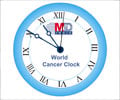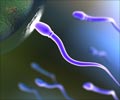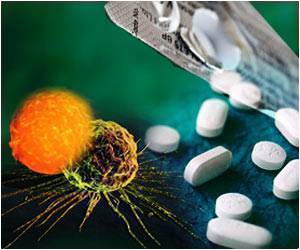Young men diagnosed with cancer now have the choice of storing their sperms in case of therapy-related infertility. But they need to assess their fertility rates as advised by their doctors.

However, young men who have undergone these treatments for cancer have the choice of storing their sperm before the start of treatment. This would enable them to start a family, in case they suffer from post-treatment infertility. Besides, radiotherapy and chemotherapy have the ability to create mutations in sperms or in testicular tissues and limitations caused by this too can be overcomed by storing the sperms.
The sperms may be cryopreserved-in other words they are processed and stored in canisters containing liquid nitrogen. Sperms thus stored may be preserved for several years. This facility comes with its own set of rules, one of which is that the sperm donor is required to keep in touch with the fertility clinic and assess his fertility within a year of treatment.
However, many young men do not care to attend the follow-up appointment to evaluate their fertility as they do not realize that it is possible for their doctors to dispose off their sperms if ongoing fertility is not confirmed. This move is quite tragic as it leaves the men with little hope of fathering a child.
A Cancer Research UK –funded study was carried out on 499 male cancer survivors, between the ages of 18-55 years, who cryopreserved their sperms in sperm banks at Sheffield and Nottingham.
The scientists found that greater than one third of men who chose to freeze their sperm prior to cancer treatment did not attend a single fertility- assessing follow-up appointment. Another one third attended just one session of the follow-up.
Thankfully, the majority of men diagnosed with cancer would have completed their families prior to the diagnosis. But, with those men who haven’t fathered children at the time of cancer diagnosis, and who are serious about having their own families, the possibility of reduced fertility must be properly discussed.
 MEDINDIA
MEDINDIA




 Email
Email










